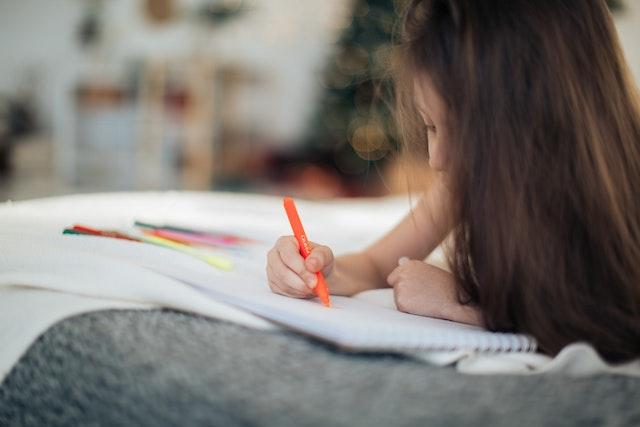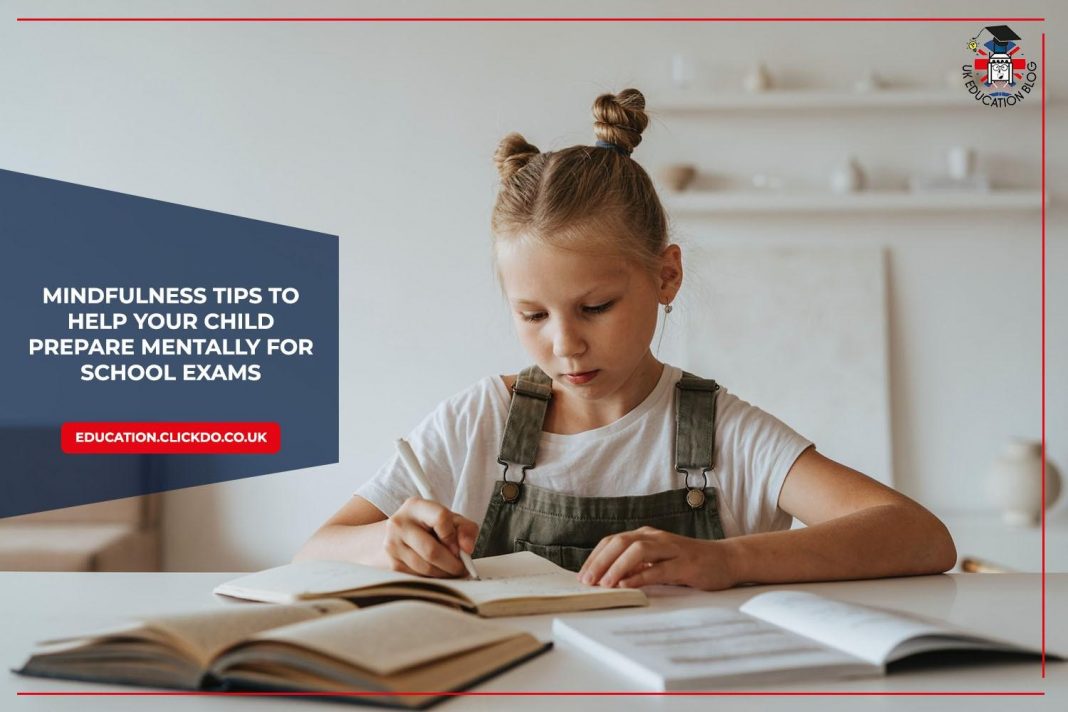Exam season can be gruelling, to say the least, leading to mental health issues such as anxiety, depression, and low self-esteem. Here we discuss how to prepare child for exams.
These illnesses in themselves can impact your child’s health greatly, affect their eating habits and sleep.
Statistics reveal that the biggest causes of decreased academic performance are depression, anxiety, and stress. Amongst them, anxiety accounted for 23.2% of poorer performance while depression contributed to 15.4% and stress made up 31.8%.
We have teamed up with Mill Hill international school in North London to share 6 expert mindfulness tips to help your child prepare better mentally for school exams.
Why Practise Mindfulness?
With looming exams, it’s hard not to get overly consumed by thoughts about it. Practising mindfulness can help your child bring themselves back to the present moment and put their worries on mute. Many liken this to meditation as it involves being one with your surroundings, patience and using breathing techniques.
This focuses the mind on the five senses to divert attention away from overwhelming thoughts, allowing us to focus on the present. Breathing exercises are used to help lower the heart rate and improve oxygen levels, allowing your child to think clearly and calmly.
How to Exercise Mindfulness with Your Child?
1. Mindfulness Videos

Without getting bogged down into all the different techniques that are out there, there are many videos that your child can follow on YouTube. Channels such as ‘Calm’ have a long list of successful YouTube videos that have helped many with their mental health. Videos provide direction, are soothing and often last around 10 minutes. To help your child with their mental health we advise carrying out mindfulness before a stressful situation, during and after.
2. Mindful Colouring

As our experiences are all unique, you might find that breathing techniques don’t work for your child. This is okay as there are plenty more where that came from. Another technique that you can try with your child is mindful colouring. Colouring isn’t just for children and is used by many adults as a form of stress relief. It can be very therapeutic and relaxes the fear centre of the brain known as the amygdala to relieve a restless mind.
3. Show Your Support

Showing your child that you’re there for them can help to make this a less scary process, give them motivation and a sense of direction. As a parent, there are many ways that you can help – even if it’s been a while since you were in the classroom.
For one, you can reassure them of the fact that they’re going to be just fine and let them know how proud you are of them. Show your child just how much you believe in them and their ability, emphasising how much they could achieve if they try.
Exams can feel like the weight of the world is being carried for some children as they don’t want to let their parents and family members down. This can relieve some of that burden and help your child to maintain a healthy state of mind.
4. Past Papers for Improving Confidence
They say that confidence comes from our past experiences. To help your child feel at ease, remind them of similar challenges that they faced and what the outcomes were. Also, to help you can run through past exam papers with your child that is usually available online on the exam board’s website. Tackling one exam question at a time can help your child to improve their ability and boost their confidence in this way.
5. Organisation is Essential

To help your child feel less overwhelmed during this time you can help them to get organised by making sure that they have everything that they need for their studies. Resources may include revision guides, stationery, colourful materials, and sticky notes to stick out or binders. Without some form of organisation, it can be tricky to work out how you’re going to get out of a situation, how big the problem is and where to even start. This can help your child to better manage their workload, avoid losing their schoolwork and improve their mental health.
6. Make Sure That Your Child Gets Enough Sleep

Sleep is a huge factor in how our body deals with stressful situations. When we are sleep deprived, not only does it affect our performance, but it also makes us more irritable and heightens our anxiety. To help your child mentally prepare for school exams you can make sure that they stick to a healthy sleep routine and don’t burn themselves out by working till late.
Your child should aim for 8 hours of sleep every night and there are a few things that you can do to help. To stop your child’s brain from whirling at this time, you can ban devices 30 minutes before bedtime and exercise a body scan mindfulness activity. This is used by parents that have difficulty getting their young children to sleep and those that experience pain in their bodies.
Hopefully, the 6 mindfulness tips to prepare your child for exams mentally will prove useful for them and you will be able to support them where you can to come out mentally stronger after the exams have been completed. Because life itself is a constant test, isn’t it?
Author Profile

- Editor in Chief
- Blogger and Educator by Passion | Senior Online Media & PR Strategist at ClickDo Ltd. | Contributor to many Education, Business & Lifestyle Blogs in the United Kingdom & Germany | Summer Course Student at the London School of Journalism and Course Instructor at the SeekaHost University.
Latest entries
 Directory PostsOctober 29, 20257 Not-To-Miss UK Education Conferences in 2026
Directory PostsOctober 29, 20257 Not-To-Miss UK Education Conferences in 2026 Directory PostsOctober 16, 2025The 12 Best Online Tutoring Platforms in the UK
Directory PostsOctober 16, 2025The 12 Best Online Tutoring Platforms in the UK Directory PostsOctober 6, 2025Top 12 London Private Schools – Best Independent Schools Nearby
Directory PostsOctober 6, 2025Top 12 London Private Schools – Best Independent Schools Nearby careerSeptember 10, 20258 Top Online Future Career Courses To Know
careerSeptember 10, 20258 Top Online Future Career Courses To Know







